- Home
- About us
- Students
- Courses
- Research
- Library
- News & Events
- Gallery
- Contact
- Our Blog
Latest News

St Andrew's 9th Patristic Symposium 2022 - A Great Success!
Sep 05, 2022
admin
St Andrew's 9th Patristic Symposium 2022 - A Great Success!
With the blessing of His Eminence Archbishop Makarios of Australia, College Dean, St Andrew’s Theological College held its 9th Patristic Symposium on 2-3 September, 2022. The theme of this year’s Symposium was: ‘St Maximus the Confessor within 7th Century Christianity: Theology and History’, and the two keynote speakers were, the Very Reverend Professor John Behr (Regius Professor of Humanity, University of Aberdeen) and Professor Paul Blowers (Dean E. Walker Professor of Church History, Milligan University). St Maximus the Confessor (d. 662AD) is one of the most significant Byzantine saints in the Orthodox Christian tradition; not only did he manage a unique synthesis of Platonic and Aristotelian categories within a comprehensive Christ-centred worldview, but he also engaged and clarified difficult sayings in the writings of St Gregory the Theologian, expanded upon the thought of St Gregory of Nyssa, and wrote extensively on the nature of the Church, the person of Christ, asceticism, the self-sacrificial love of Christ and the life of holiness.
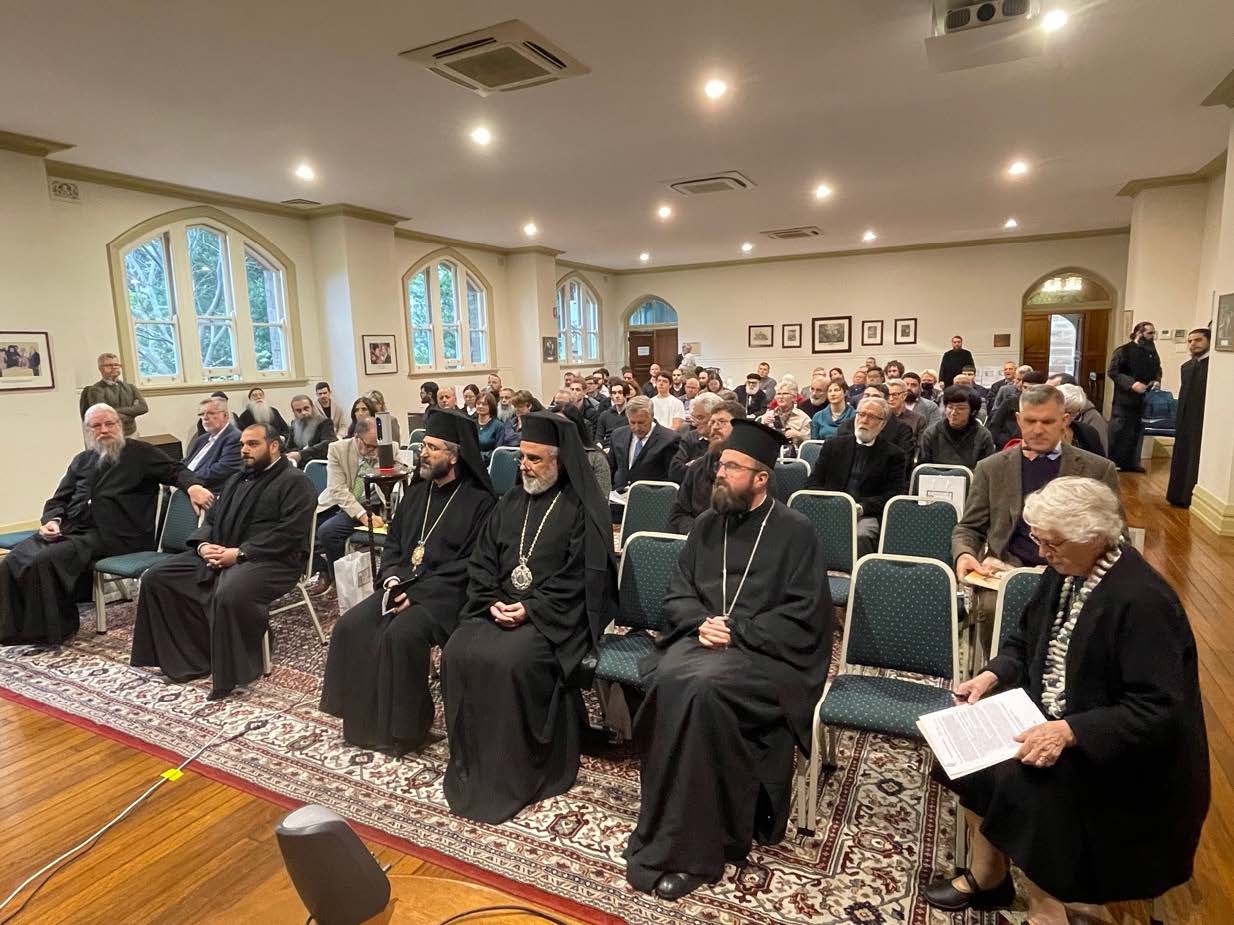
Whilst His Eminence Archbishop Makarios was not able to be present, due to prior overseas commitments, he was represented by His Grace Bishop Iakovos of Miletoupolis who read the Dean’s welcome. Amongst other things, His Eminence noted: “After a three-year hiatus due to Covid-19, I am very pleased to welcome you all back once again to our annual research conferences—events of preeminent importance for the life of St Andrew’s Theological College.” In reflecting on a passage from the Two Hundred Chapters of Theology, in which St Maximus speaks of theology as an openness, on the part of the faithful, to encounter Christ, His Eminence noted: “for St Maximus, [theology] requires a readiness on our part to allow Christ to soften and refashion our soul into his image, in the same way, as the Saint notes, that wax, only when it is softened, can be remoulded….. And this is achieved when we learn how to love with the love with which He loved us first.”
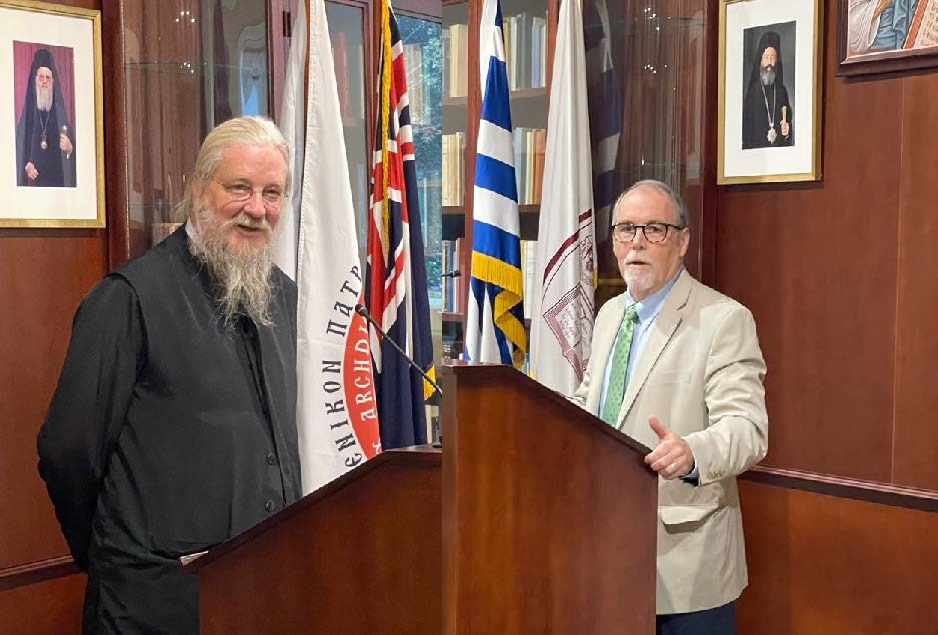
Following the Dean’s welcome, the first keynote speaker, the Very Revd Prof. John Behr delivered his keynote address entitled: “From St Gregory of Nyssa to St Maximus the Confessor; the Background for Ambiguum 41” both to the 130 participants present in the Hall of the College and those following the proceedings through ZOOM. Building on his new edition and translation of St Gregory of Nyssa’s On the Human Image of God, Fr John explored the meaning of the biblical term ‘image’ as it relates to the human person; here he highlighted that the term ‘image’—a referent to all of humanity throughout the ages which together image Christ—is properly understood as an eschatologically conditioned reality, namely, it is in dying that human creatures are born into life as human beings. Furthermore, he argued that the male-female distinction is the means by which God foreordained that humanity might fulfil His eternal plan for the human person. In light of today’s contemporary society which often asks what it means to be a human person, the focus of the address on Christian anthropology in saints Gregory of Nyssa and Maximus was most relevant and highly appreciated.
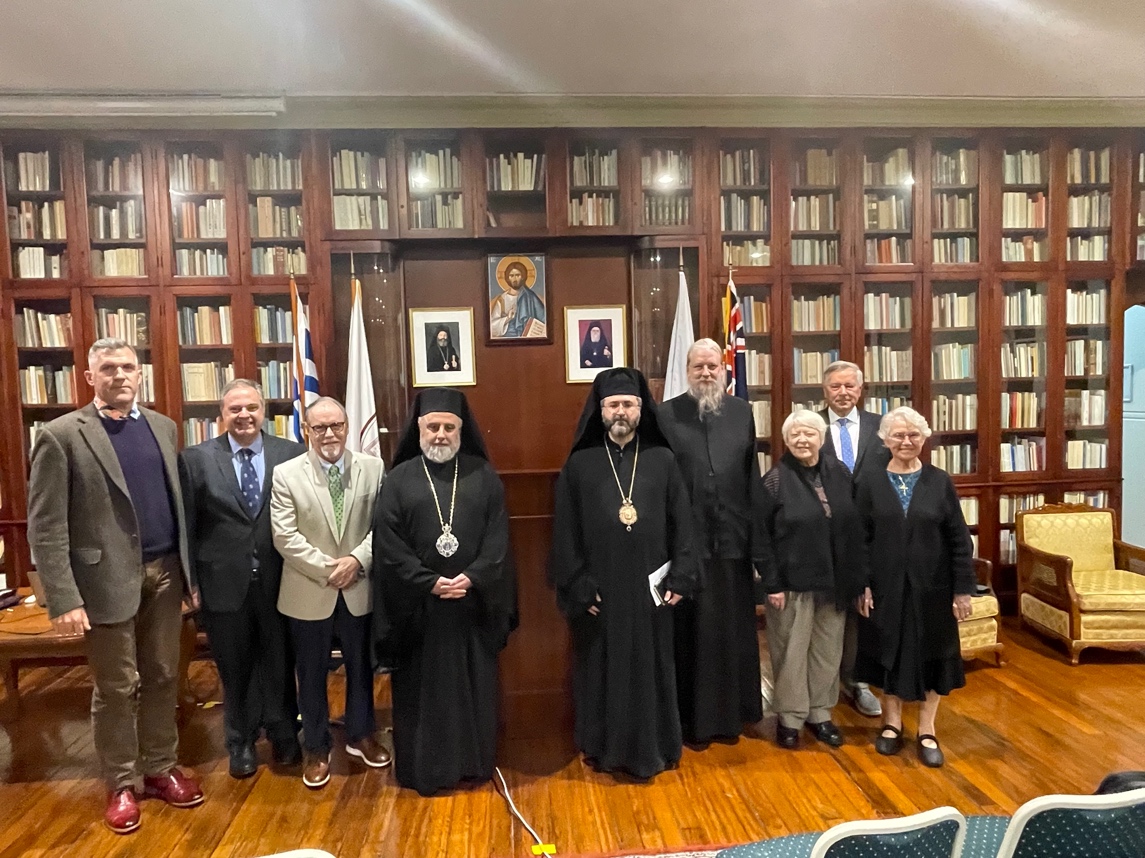
Following this, Professor Paul Blowers was the second keynote speaker. The title of his paper, “Comparing Maximus the Confessor and Augustine of Hippo on the Mystery of the Love of God”, focused on bringing into dialogue these two great Christian luminaries of the Christian Church. The paper especially focused on the way that these two fathers understood God as love and the way that this divine love is seamlessly communicated in creation and the economy of salvation. The paper compared and contrasted the unique approaches of Augustine and Maximus on the mystery of love as grounded with the mystery of the Holy Trinity, conveyed in creation, perfected in Christ and the Spirit, and supremely formative of the how the faithful are called to live out their Christian life on a daily basis. The presentation was well received as it not only reflected on a quintessential aspect of the Christian message, but importantly brought to light how we are called to actualise this gift of God’s love in our life and especially in our relations to those around us.
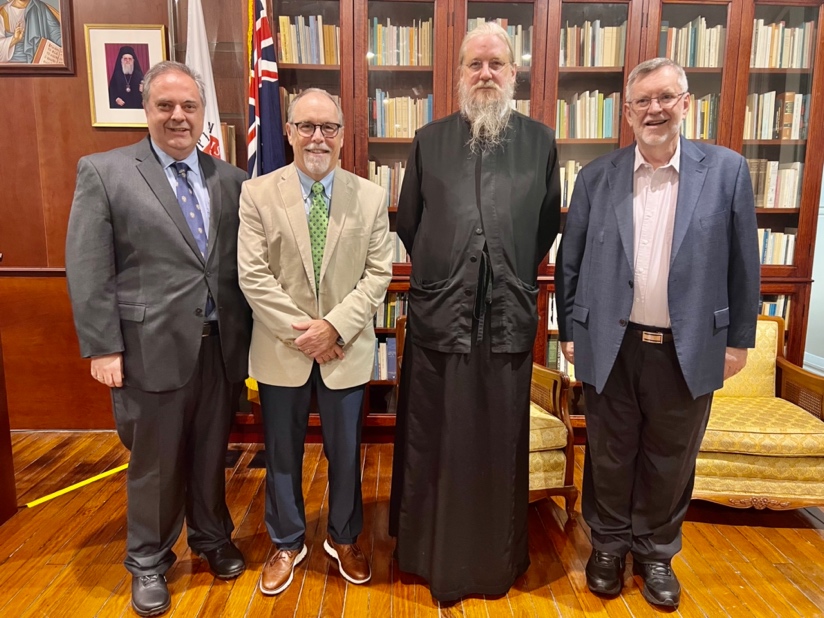
The Symposium hosted another thirteen papers; the names of the remaining presenters were: Dr Vasilis Adrahtas (Western Sydney University and University of NSW); Sr Assoc. Prof. Margaret Beirne (St Andrew’s Theological College, Sydney College of Divinity); Professor David Bradshaw (University of Kentucky); Assoc. Prof. Adam Cooper (University of Divinity, Catholic Theological College); Dr Cullan Joyce (University of Divinity, Catholic Theological College); Michael Ibrahim (St Cyril’s Coptic Orthodox Theological College); Assoc. Prof. Eva Anagnostou-Laoutides, Kyeongyoon Woo (Macquarie University); Dr Andrew Mellas (St Andrew’s Theological College, Sydney College of Divinity); Revd Dr Joe Mock (Gracepoint Chinese Presbyterian Church); Revd Assoc. Prof. Bassam Nassif (St John of Damascus Institute of Theology); Professor Aristotle Papanikolaou (Fordham University, Co-Director of the Orthodox Christian Studies Centre); James Rutherford (Moore Theological College); Dr Nikolaos Zarotiadis (Aristotle University of Thessaloniki). All papers provided a space for different scholars, not only from different academic affiliations but also denominational backgrounds and different fields of expertise to come together in order to to reflect on the life, teaching and significance of St Maximus the Confessor. Indeed, there were scholars presenting from at least five countries, making for a truly international conference.
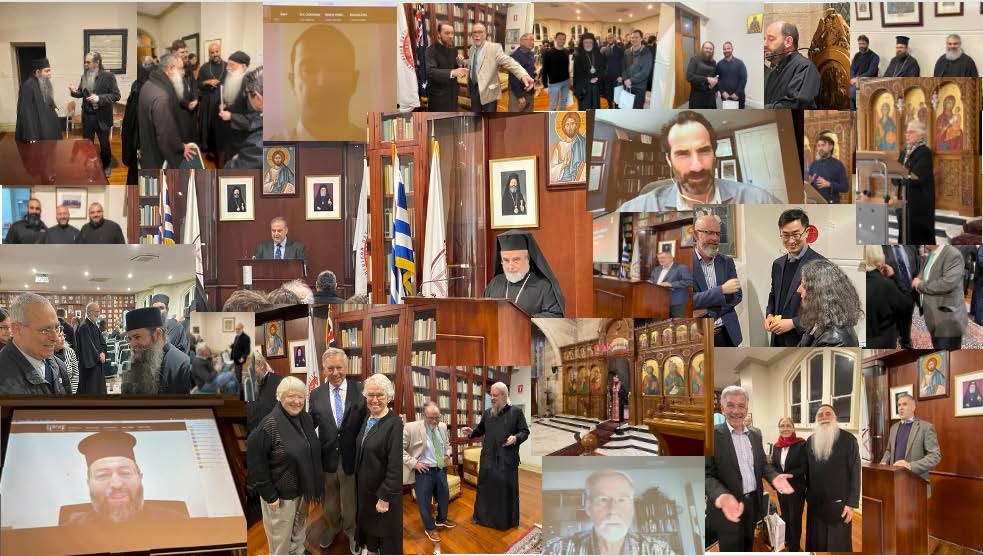
Perhaps it is fitting to end with—indeed, to join in singing with gratitude—two hymns chanted at Vespers Service of the feast day of St Maximus the Confessor which highlight his perennial significance as one who continues to guide the faithful to Christ:
Your all-sanctified tongue became like the pen of a ready scribe whetted by the Spirit, O Father Maximus; and on the surfaces of our hearts in grace it exquisitely wrote the tablet of divine godly virtues and the precise dogmas, and the Lord's incarnation in dual natures and in one hypostasis and person, as was His will to appear to us.
We… honour you, O Maximus, as our teacher and guide. For through you we have learnt to walk the truly straight and narrow path. Blessed are you, who served Christ and triumphed over the power of the enemy. As you consort now with the Angels and dwell with the Devout and Righteous, pray with them to the Lord, that He have mercy on our souls.

.jpg)





.png)